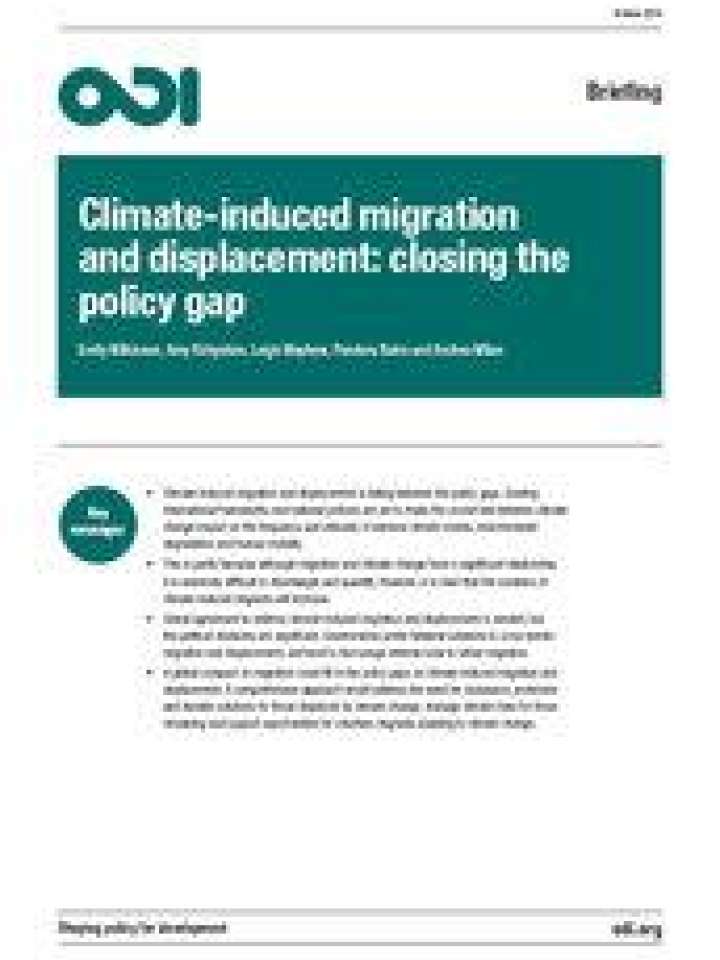Climate-induced migration and displacement: closing the policy gap
This briefing explores climate-induced migration and displacement, which are seen to be falling between the policy gaps. Existing international frameworks and national policies are yet to make the crucial link between climate change impact on the frequency and intensity of extreme climate events, environmental degradation and human mobility. Indeed, while migration and climate change have a significant relationship, it is extremely difficult to disentangle and quantify. However, it is clear that the numbers of climate-induced migrants will increase.
The briefing calls for a global agreement to address climate-induced migration and displacement, but the political obstacles are significant. Governments prefer bilateral solutions to cross-border migration and displacement and tend to discourage internal rural-to-urban migration.
A global compact on migration could fill in the policy gaps on climate-induced migration and displacement. A comprehensive approach would address the need for assistance, protection and durable solutions for those displaced by climate change, manage climate risks for those remaining and support opportunities for voluntary migrants adapting to climate change.
Explore further
